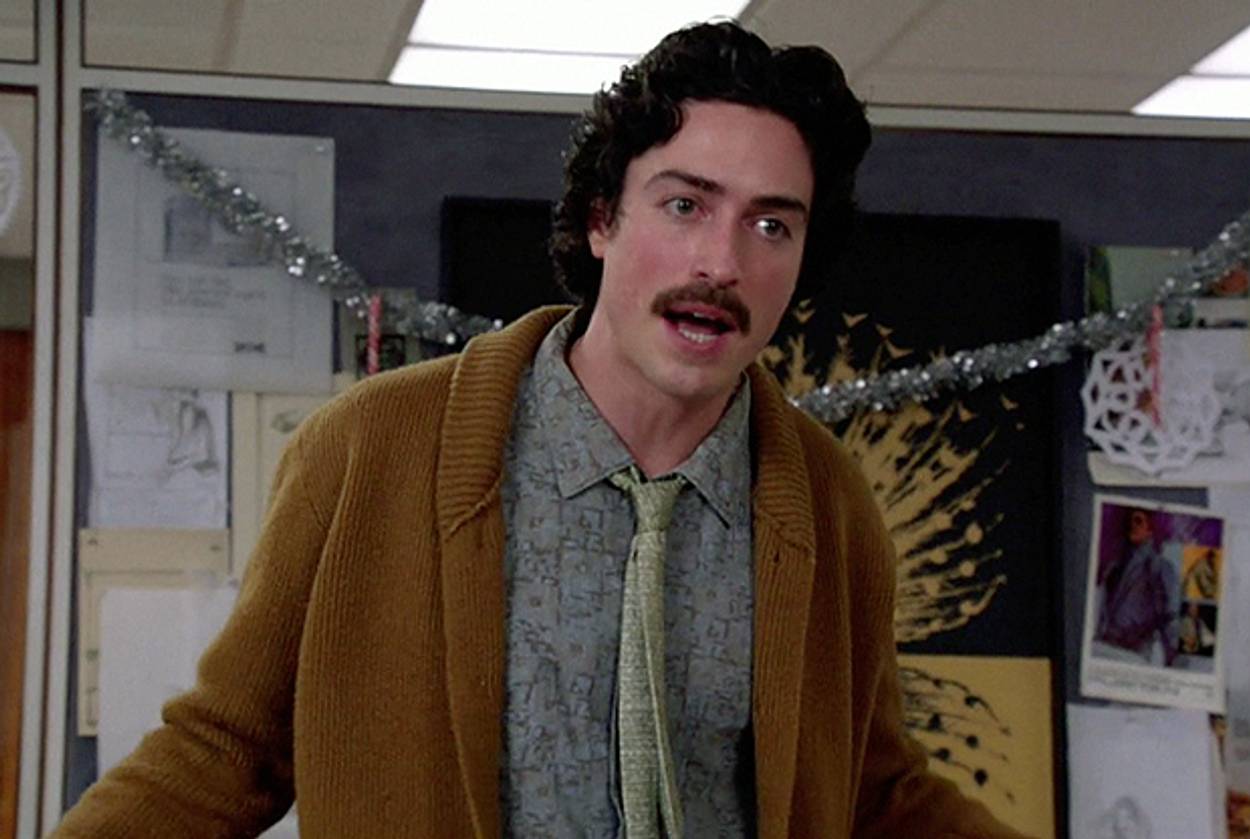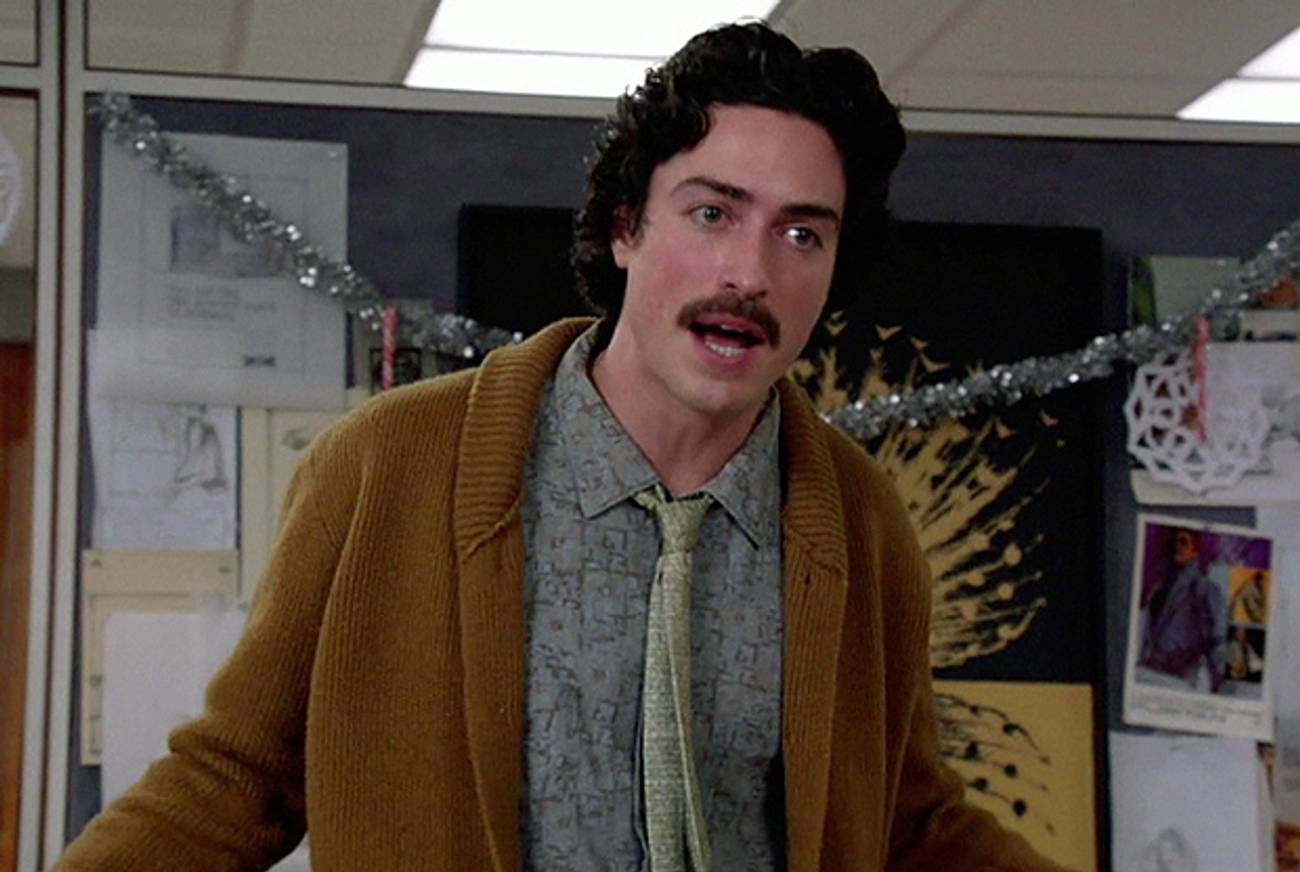Mad Men’s Ginsberg Finally Gets His Plotline
Though it’s not exactly what we had in mind for the nebbishy copywriter




I saw the best minds of my generation destroyed by madness, slicing off their nipples because they thought they were the valves to the giant office computer whose gamma rays were turning them gay.
Okay, that’s a paraphrase. But holy matzoh balls, Batman! Last night on Mad Men we met Ginsberg’s severed nipple, staring bloodily from the cotton-lined jewelry box in which he lovingly presented it to the justifiably aghast Peggy in the grisliest display of ill-advised affection since Van Gogh and his earlobe. Talk about a water-cooler moment. I mean, Guy-Who-Got-His-Foot-Run-Over-By-A-Lawnmower who?
Let me back up, just in case you’re not up to speed (and spoiler alert, etc.) Michael Ginsberg, Mad Men’s fast-talking, neurotic, fill-in-your-Hebrew-euphemism-here copywriter on whose behalf I was agitating for a couple of weeks ago, finally got a plot line, and boy, was it a doozy, if not exactly what I’d had in mind.
Convinced the so-called “Monolith,” the enormous IBM computer acquired by the forward-thinking Sterling Cooper & Partners in last week’s episode was transmitting radioactive waves designed to turn people into homosexuals, Ginsberg suffered a massive psychotic break, turning up at Peggy’s house in the middle of the night to insist they “reproduce,” and finally, presenting her with the macabre token that finally caused her to call the men in white coats to take him away. Ladies and gentlemen, Mad Men’s first official casualty of the 1960’s. (On the bright side, we finally figured out what male nipples are for!)
Ginsberg’s breakdown isn’t all that surprising; it never is, in retrospect, is it? The signs were there. The early assertion to Peggy that he was really a Martian, no longer able to hear transmissions from his home planet but hoping to again—I thought he was joking! The erratic changes in mood, the outburst and overreactions—his fight with Jim Cutler, the nervous talking on his date with the nice schoolteacher his father set him up with: easily dismissible as creative fits of pique or “cosmopolitan” excitability!
But it was the introduction of technology, the impersonal hums and whirrs of the unfeeling “monolith” in what used to be the creative lounge/weed-smoking area, that finally sent Ginsberg over the edge. This too is not particularly surprising—and not in a nebbish-y, Woody Allen “my toaster tried to kill me” kind of way. One of the few things we know about Ginsberg’s past is that he was born, and lived his early childhood, in a concentration camp. Surely being a witness to murder on such an impersonal and mass-produced scale—a scale made possible only by the technological mechanization of society—might have left the fragile copywriter uniquely susceptible to the terror caused by an enormous machine that turns people into numbers and numbers into nothing. Poor Ginzo. I hope he finds some kind of peace in the brave new world of psychopharmacology that awaits him at Bellevue or McLean or wherever he winds up.
And in the meantime, I’ll enjoy seeing him on his new sitcom, A to Z, this fall on NBC. Hollywood may not quite be able to compete with Silicon Valley when it comes to neatly expedient solutions to storytelling problems. But it sure can give it the old college try.
Rachel Shukert is the author of the memoirs Have You No Shame? and Everything Is Going To Be Great,and the novel Starstruck. She is the creator of the Netflix show The Baby-Sitters Club, and a writer on such series as GLOW and Supergirl. Her Twitter feed is @rachelshukert.